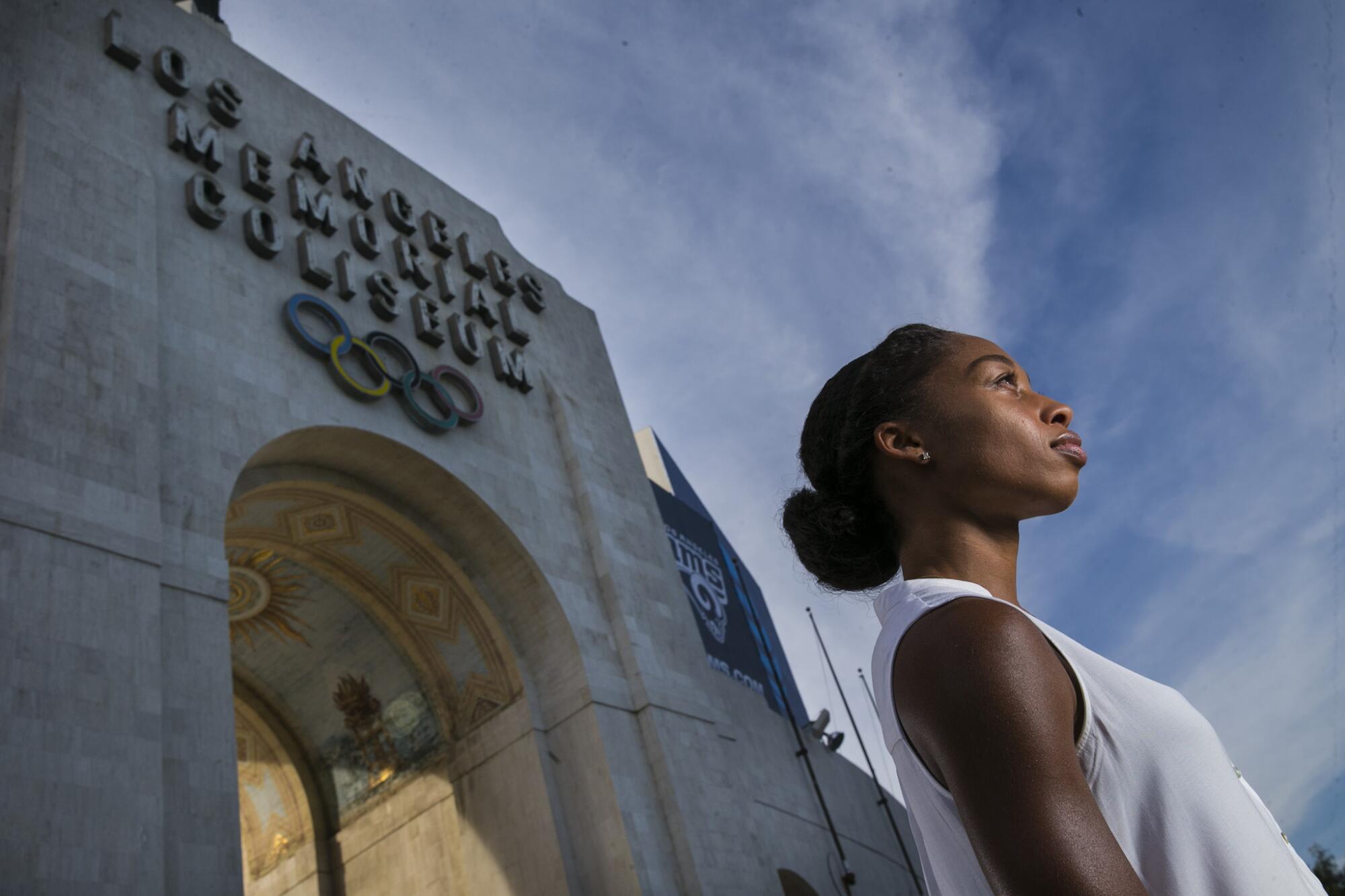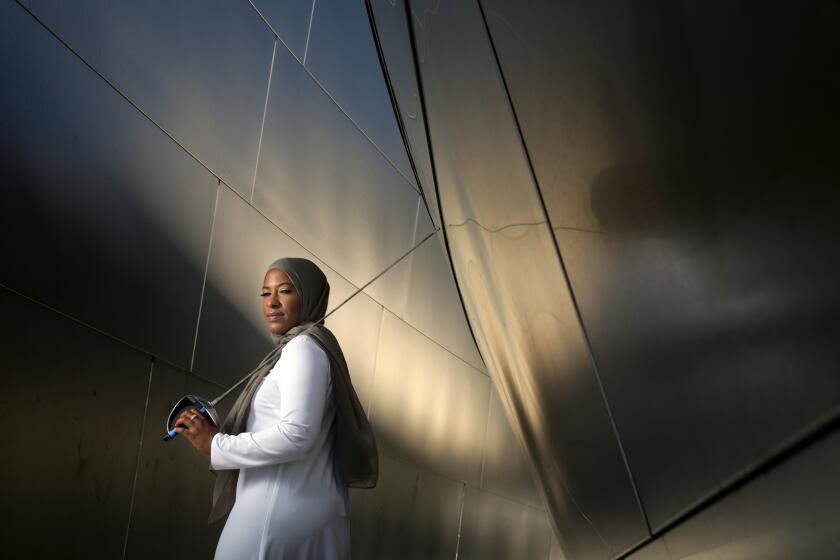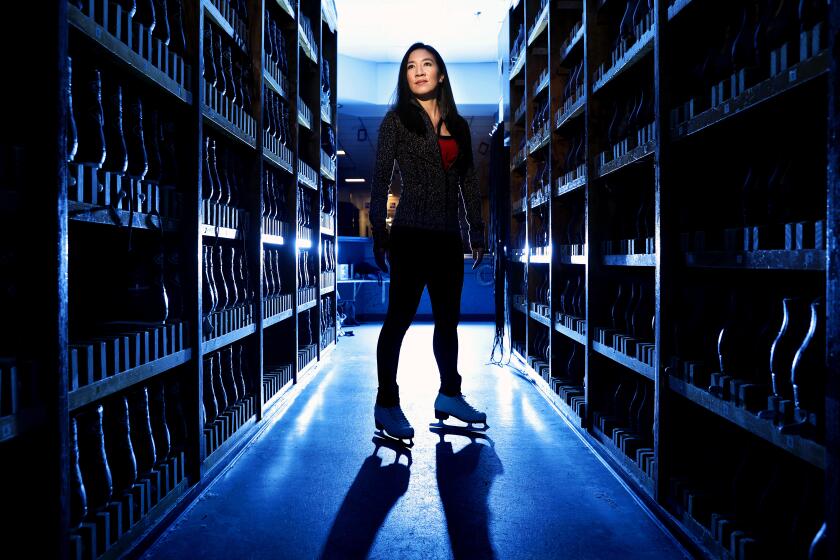
A pastor’s daughter and humble by nature, Allyson Felix counts her blessings, not her accolades. So when she learned that her contribution to a U.S. victory in the new mixed-gender 1,600-meter relay race in Qatar last year was her record 12th gold medal at the world track and field championships — one more gold than Jamaican sprinter Usain Bolt had won — she was genuinely surprised.
“I’ve never been one to keep track of things like that. I just focus on things I need to do,” says Felix, who became the leader among female track and field Olympians in 2016 with a career total of six gold medals. “Going into worlds, I had no idea of anything — if I was close, whatever. I was focused on being back and continuing to progress.”
Merely reaching the world championships was a significant triumph for Felix.
The moment that Ibtihaj Muhammad qualified to represent the U.S. in fencing at the 2016 Summer Olympics, her thoughts turned to something beyond sport.
Her path to the 2020 Tokyo Olympics — which would be her fifth Games — took a dramatic detour when she prematurely gave birth to her daughter Camryn by emergency Caesarean section on Nov. 28, 2018. For a month, Felix kept an anxious vigil while the baby was tethered to tubes and monitors.
When Camryn began to thrive and Felix returned to the track, her body didn’t always do what she demanded. She finished sixth in the 400-meter race at the 2019 U.S. championships, too low a placement to compete in that event at the world championships but good enough to be part of the relay pool.

“My expectations are always very high, so I had hoped to run better, but at the same time I didn’t expect a warm welcome,” she says. “I was just really touched that people cared or that they understood that I had a tough year and the road back and all of that, so that was neat.”
Felix competed at the U.S. meet without a sponsor, having parted with Nike after she joined other premier female runners who decried the company’s policies related to maternity leave. Felix has since signed with a new sponsor, Athleta, and is involved in designing a clothing line for the company. Its advertisements feature unedited photographs of models, a statement about body image that resonated deeply with Felix.
“Our values and their mission align, to empower women and girls. And I think especially me having a daughter, it just made that so much more important and it made me understand that even more,” Felix says. “I just felt like this was the right place and I’m in a place where I can feel proud to tell my daughter about. …
Felix, 34, had been commuting from her Los Angeles training base to Detroit to be with her husband, former runner Kenneth Ferguson, who works for Chrysler, but the family recently settled back in Southern California to make her life and training easier leading up to the Olympics. These will be her last Games, in deference to her age, her desire to add to her family, and her growing interest in advocating for female athletes. As she nears the end of her stellar career, her regrets are few.
“I think the place I’m in now is just appreciative for the experiences. My younger self couldn’t handle that,” she says. “But now I’m grateful for the hard moments and even for this year. It’s taught me a lot about myself. I’ve grown a lot; I’ve definitely been tested. It’s almost like this is where I want to be going into those final years, where I’m confident but still hungry and very secure in who I am.”
One of South Africa’s most talented athletes fights to stay on the track.
A few weeks after Felix won her record-setting gold medal at the world championships, American gymnast Simone Biles set a record of her own by winning her 24th medal at the world gymnastics championships. Felix applauded Biles’ accomplishment and the feats of other women, saying she believes it’s a good time to be a female athlete.
“I hope there’s still better times to come, but I feel like this is a pivotal moment,” Felix says “[It feels] special right now, from women’s soccer to Simone in gymnastics. There’s just so much that is happening, and I feel that we are experiencing the effects of using our voice and the collective power in that. And I think that is going to make better times for the next generation.”










